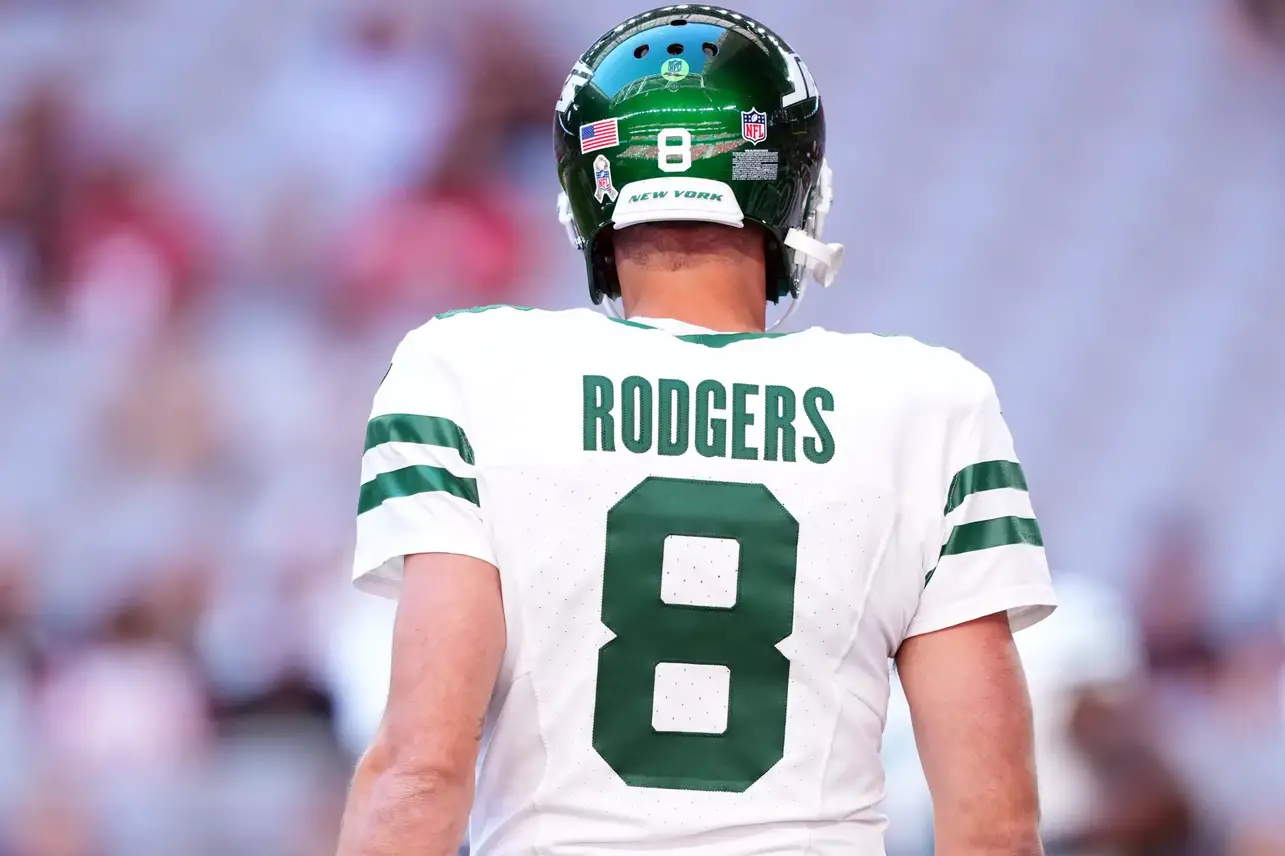Once upon a time, an unknown quarterback from Chico, California took the college football world by storm. His name, Aaron Charles Rodgers.
Although he had a solid career at Pleasant Valley High School, Rodgers would not receive a single offer to play at the collegiate level. He considered quitting football at one point altogether but eventually decided to play at Butte Junior College, not far down the road from his hometown. After leading Butte to a conference championship in his first year, Rodgers was given the opportunity to play at the University of California, Berkeley. The craziest part of this story is that Rodgers wasn’t even a recruiting target for Cal, he was discovered by accident.
Cal’s head coach at the time, Jeff Tedford, was watching game film of Rodgers’ teammate, tight end Garrett Cross, who would also attend Cal with Rodgers when he noticed the quarterback for Butte dominating the opposition. Tedford was shocked to discover that Rodgers had not received a single scholarship offer out of high school. He decided to take a gamble on this young quarterback. In the end, this would turn out to be the best decision Jeff Tedford ever made.
Also Read: Aaron Rodgers Future Appears Uncertain with the New York Jets
A Season To Remember for Aaron Rodgers
If you are a fan of the California Golden Bears, you have to learn to live with disastrous consequences and painful results. In over sixty years of Cal football, the Bears have not appeared in a major bowl game since the Rose Bowl on January 1, 1959. Since then, there have been very few bowl game appearances and many, many losing seasons. Every now and then, Cal will put a decent team on the field. More often than not, however, most of their squads have been destined for failure. After decades of futility, it took a local lad from Chico to save Cal football from the depths of despair.
During his first year at Cal in 2003, Rodgers was not named the starting quarterback until week five of the season. Almost immediately, the Cal offense became explosive under their new signal caller. One of the high points for Rodgers and the Bears in 2003 was a victory over eventual national champion USC. During a ten-year span in the early 2000s, the Trojans were one of the best teams in College Football, winning two national championships and multiple conference titles. With the upset victory over USC, Cal fans knew there was something special about this team. To take on the mighty USC Trojans of that era and beat them was something that rarely happened. By the time the 2004 season rolled around, expectations in Berkeley were higher than they had been in a very long time.
Led by Rodgers at quarterback and 2,000-yard rusher J.J. Arrington in the backfield, the Cal offense roared through the 2004 season. Did I mention Cal’s backup running back at the time was a true freshman named Marshawn Lynch? Let that be a reminder of how good this team was. Their only blemish in the regular season was a 23-17 defeat to a team some consider one of the greatest of all time, the 2004 USC Trojans.
Not only did USC have Matt Leinart and Reggie Bush, two future Heisman Trophy winners, leading the charge, but their defense was historically great as well. For as good as USC’s defense was in 2004 however, Aaron Rodgers torched them all day long. He completed 23 consecutive passes, tying an NCAA record, leading the Bears within nine yards of the go-ahead score with just under two minutes to play. On Cal’s final drive of the game, the Trojans were able to stop Rodgers and the Bears just short of the goal line. Although victory was not to be on that October afternoon, there was no doubt that Cal was the better team that day, and Aaron Rodgers was the reason why.
Unfortunately for the Golden Bears, with all the success they had throughout the year, their season would end in utter disappointment. With USC playing in the Orange Bowl, the site of the national championship game that year, an invitation to the Rose Bowl was expected to be extended to Cal as the Pac 10 representative. However, after a 10-1 regular season, which included a close loss to the undefeated and eventual national champion USC Trojans, the BCS committee felt it wasn’t enough to select Cal for the Rose Bowl spot. Remember the insanity that was the BCS? I do, but I try not to think about it.
The BCS committee would wind up picking Texas to play Michigan in the Rose Bowl, relegating Cal to play in the Holiday Bowl. By the time the game rolled around, Cal was dealing with multiple injuries to some key players, as well as disappointment from not being selected for the Rose Bowl. This proved to be too much to overcome as Cal was blown out by Mike Leachs’ Texas Tech Red Raiders. After the season came to an end, Rodgers decided to forego his final year of eligibility and enter the NFL draft, closing the book on his career as a Cal Bear.
As the future Hall of Famer enters the final years of his illustrious NFL career, a career which includes four MVP trophies, a Super Bowl title, and countless other accolades, Rodgers will always be remembered as the man who breathed new life into the Cal football program. Rodgers and the 2004 team gave the Cal fanbase memories that will be in their hearts and minds for generations to come. It takes a special player to guide a program from being a traditional loser to one of the best teams in the country. Saturday afternoon, against their longtime rival, the Stanford Cardinal, this legendary quarterback returns to California Memorial Stadium with his teammates from the 2004 squad. Let’s face it, there is only one QB1 at Cal and it will always be Aaron Rodgers.
Although number eight won’t be suiting up for the Golden Bears anymore, having him on the sidelines just might be enough to lead the current Cal team to victory.
For More Great Football Content
To read more of our articles and to keep up to date with the hottest news stories in College Football and the NFL visit our website.
Our Partners



